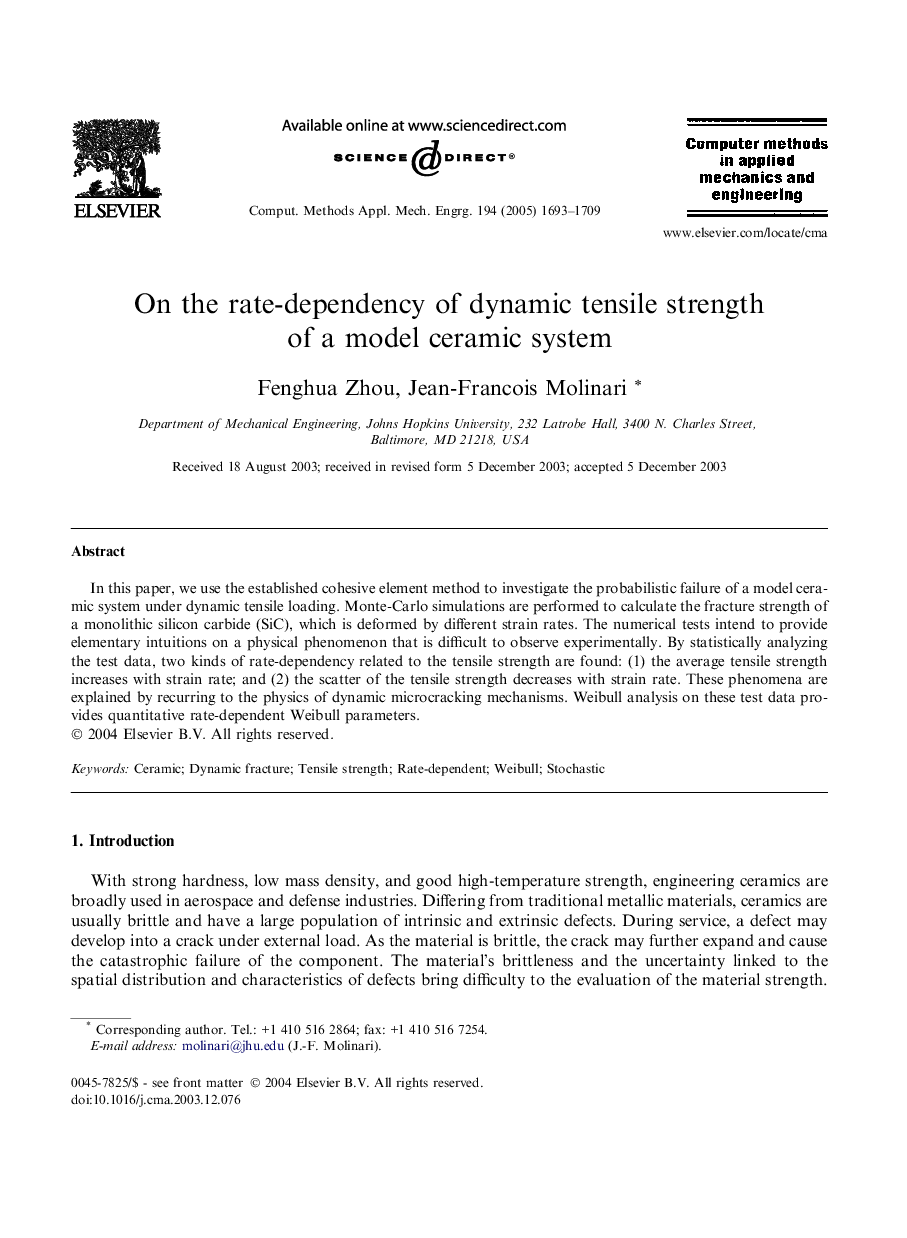| Article ID | Journal | Published Year | Pages | File Type |
|---|---|---|---|---|
| 9667109 | Computer Methods in Applied Mechanics and Engineering | 2005 | 17 Pages |
Abstract
In this paper, we use the established cohesive element method to investigate the probabilistic failure of a model ceramic system under dynamic tensile loading. Monte-Carlo simulations are performed to calculate the fracture strength of a monolithic silicon carbide (SiC), which is deformed by different strain rates. The numerical tests intend to provide elementary intuitions on a physical phenomenon that is difficult to observe experimentally. By statistically analyzing the test data, two kinds of rate-dependency related to the tensile strength are found: (1) the average tensile strength increases with strain rate; and (2) the scatter of the tensile strength decreases with strain rate. These phenomena are explained by recurring to the physics of dynamic microcracking mechanisms. Weibull analysis on these test data provides quantitative rate-dependent Weibull parameters.
Related Topics
Physical Sciences and Engineering
Computer Science
Computer Science Applications
Authors
Fenghua Zhou, Jean-Francois Molinari,
